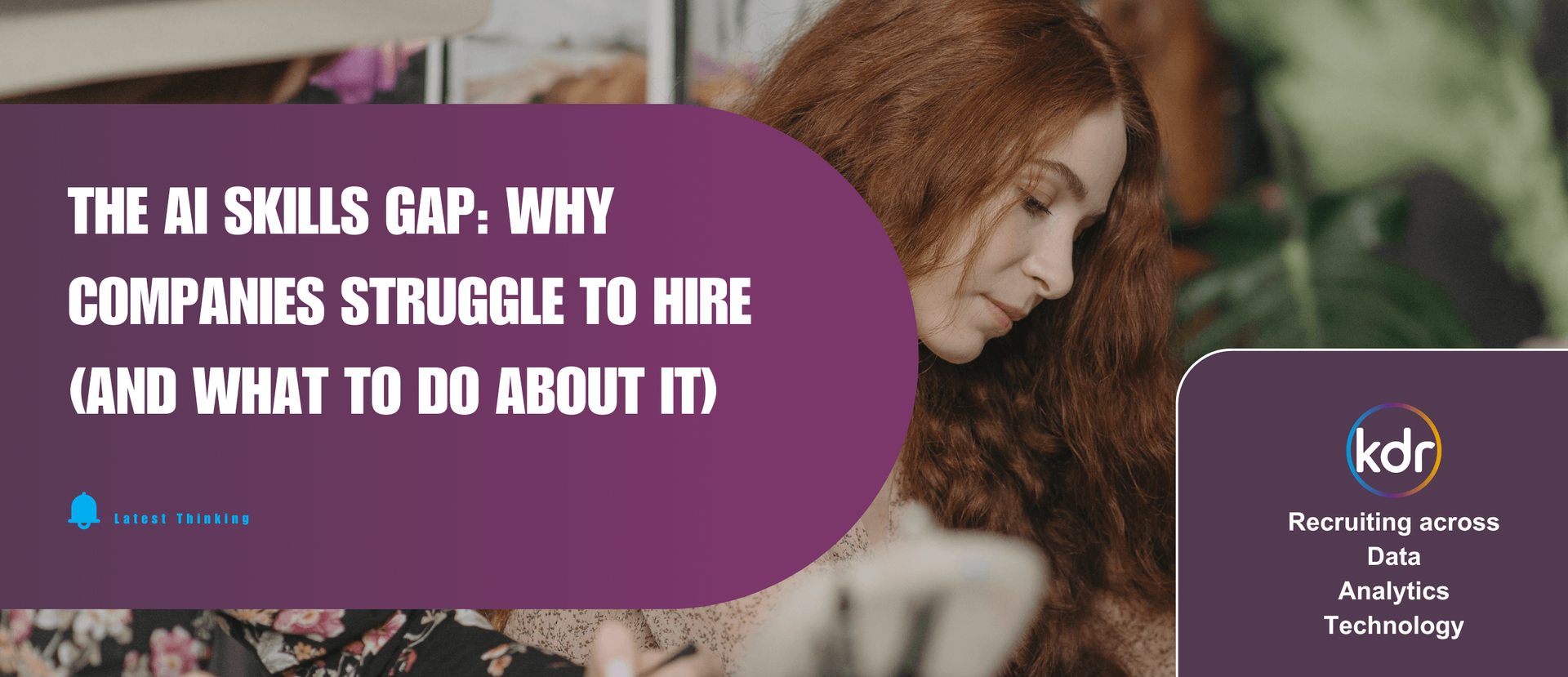Data Job Market Analysis Q3
In Q2 when I wrote my review, the last thing I thought I would be writing about this quarter was an election!

Nevertheless, the recent elections have brought interesting changes to the data and technology industry. As the owner of a data and technology recruitment company, it helps me and the team provide a better service when we understand how these political shifts will affect our industry, job market dynamics, and the overall business environment we are all working within. Firstly, as a backdrop to the current job market, I can see that the overall percentage drop from Q1 to Q2 was 3.2%, however these figures are still tracking 25% higher than the number of recorded job vacancies 10 years ago (ONS data). As mentioned in my previous roundups, industries like insurance, financial services and technology are enjoying periods of relative growth, and this is reflected in the uptick we are seeing in client requests from these specific sectors.
We saw in Labour’s manifesto that they announced a series of economic policies aimed at boosting innovation and digital transformation, but what does this mean? The R&D funding introduced back in 2000 by Labour will remain and funding for innovation and research remains stable. Other policies include tax incentives for tech startups, and increased grants for developing cutting-edge technologies such as artificial intelligence (AI), blockchain, and quantum computing. They also announced they would remove planning barriers to data centres and ensure their industrial policies encourage the development of Artificial Intelligence. The new Government have a difficult road ahead of them, with the debt to GDP ratio hovering around 100% since 2020 but they do seem to be taking a supportive stance and it is expected to foster growth and innovation in the data and technology sector, attracting investments and encouraging new ventures.
It will be interesting to see who or rather which companies are included on the industrial strategy board. Let’s see if some major tech companies land soon as this will be a good indicator of how serious they are about supporting the tech and data industry of the UK. The UK is the start up leader of Europe and Labour seem keen to capitalise on this, however post Brexit we need to ensure the country remains attractive to start ups given the shrunken market size we can now offer them compared to Europe, USA or China.
I am hoping with the government’s emphasis on digital transformation and their support for open banking and open finance technology within the financial industries that the demand for skilled professionals across data science, machine learning, data governance, cybersecurity, and software development continues to grow. With the rise of AI, increase in data (estimations show 90% of worlds data has been produced int the last 2 years), and the complexities of regulations on the digital sector we have seen in influx of data governance requirements. Companies are increasingly looking for candidates with expertise across AI and data governance to stay competitive. With this melting pot of regulation, supportive policies, increasing reliance on data I can see the job market returning to a more stable and competitive environment, which I am sure after the volatility of the last few years this will be welcomed by many, both job seekers and businesses alike.
As a quick overview I believe small companies stand to benefit significantly from the new economic policies, tax and funding opportunities. These companies will also need to navigate the new regulatory landscape, which may require additional resources to ensure compliance. SMEs are in a strong position to capitalise on the increased demand for digital transformation. With the government's support, these companies can invest in new technologies and expand their offerings. As above they will need to balance growth with one eye on compliance and Enterprise organisations will benefit from a hopefully more stable business environment, however with the increase in Cyber-attacks, ensuring compliance in this area will be a challenge.
An area close to my heart, is around early talent and apprenticeships. On this, the government has allocated more funds specifically for apprenticeships and training programs in the tech sector, which means more opportunities for both companies and individuals to receive financial support. Specifically, subsidy rates for training programs have been increased, reducing the financial burden on companies and making it more attractive for them to hire apprentices and invest in training. A route that is worth considering with the shortfall across skills gaps and diversity.
The recent elections have set the stage for significant growth and transformation in the data and technology industry. With supportive economic policies, increased demand for tech talent, and a focus on digital innovation, the industry has the basis of a really strong foundation for growth. However, businesses must navigate new regulatory requirements and adapt to changes in the labour market to fully capitalise on these opportunities.






